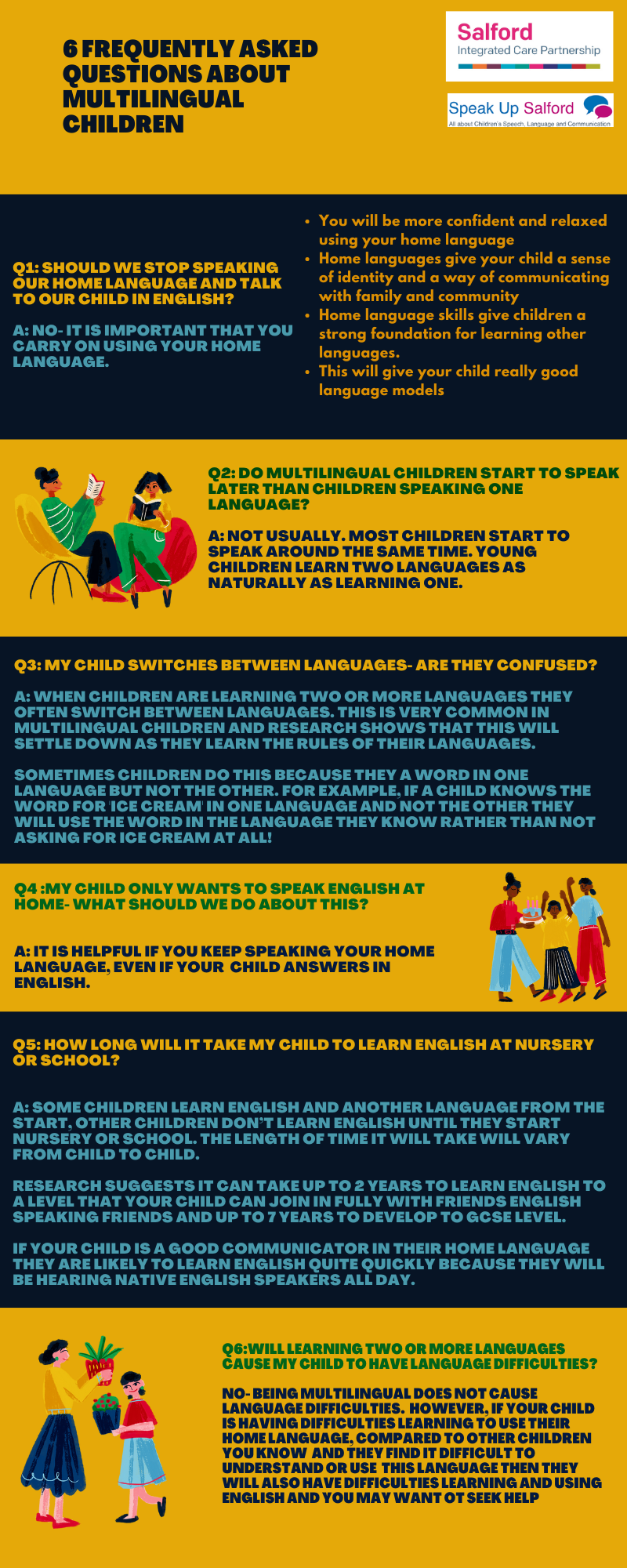When English is not your home language
Sometimes children hear and use English and one or more additional home languages. These children are called Multilingual or children who have English as an Additional Language (EAL)
If you have any other questions about multilingual children please contact us via the Speak Up Salford website and we can call you back. Our e-mail address is speakup.salford@nca.nhs.uk
The Literacy trust has tips for talking to your child in these 18 home languages
Frequently asked questions about bilingualism

Speak Up Salford Top Tips for bilingualism
Adapted from London SIG Bilingualism S. Shah Nov. 2013
Find out more
-
Click here to be taken to an article, produced by one of the top research centres in the UK, published in Nursery World Magazine (2015). It is called Confused? Myths and Facts about growing up and learning two languages.
-
Click here for useful resource- NASSEA EAL Assessment Framework. This helps practitioners to observe, document and accelerate the ways bilingual children start to use English as a tool for learning in nursery/school, and then continue to develop their skills. www.nassea.org.uk
-
National literacy trust - understanding bilingualism
-
National literacy trust - Tips for developing language given in your home language





